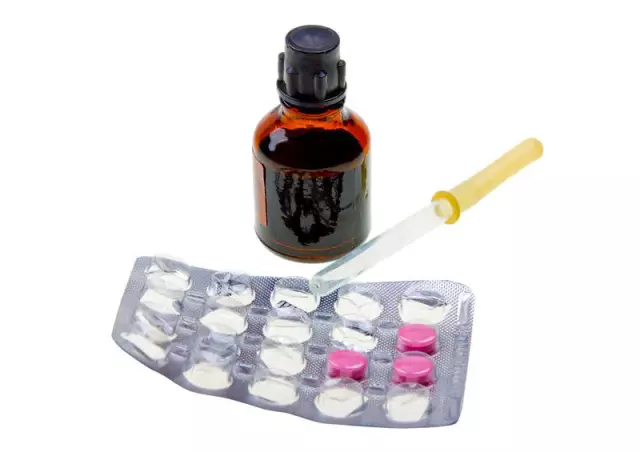- Author Curtis Blomfield blomfield@medicinehelpful.com.
- Public 2023-12-16 20:44.
- Last modified 2025-01-23 17:01.
Radioactive iodine 131, widely used in medicine, is an isotope of a common chemical element. It has the ability to decay within 8 days, forming particles of a fast beta electron, a quantum of gamma radiation and xenon.

Radioactive iodine is used to treat many diseases. Therapy with this drug allows to achieve recovery of more than 80 percent of patients who have metastases in the lungs as a result of thyroid cancer. At the same time, in 90 percent of cases, no relapses are observed within 10 years.
During treatment, gelatin capsules containing radioactive iodine are taken orally. In addition, an aqueous solution of an isotope is used, which has no organoleptic properties (taste, color, smell). The element, accumulating in the cells of the thyroid gland, exposes the entire gland to gamma and beta radiation. This allows you to destroy tumor cells located in the organ and beyond. Radioiodine therapy requires mandatory hospitalization in a specialized department.
The main goal of treatment is the suppression of activitythyroid gland, especially in overworked areas. After a course of taking the isotope, it accumulates precisely in those areas that initiate the development of thyrotoxicosis. At the same time, radiation makes it possible to destroy such foci.

Thyroid function is restored in patients after radiotherapy.
Radioactive iodine therapy for diffuse and nodular toxic goiter is performed using low drug activity. At the same time, the functional activity of the thyroid gland is fully preserved in the patient by the time of therapy. The effectiveness of the treatment of toxic goiter depends entirely on the way a person is prepared for therapy and the doses of iodine prescribed.
The method often used in conventional clinics, which allows calculating the dose of an isotope based on cumulative tests, is not entirely effective, since it leads to the prescription of unreasonably low drug activities. As a result, many patients experience a relapse of thyrotoxicosis after treatment.
Optimal results of therapy are obtained by a technique that consists in the use of fixed isotope activities.

Radioactive iodine is the most effective treatment for thyroid cancer (follicular and papillary).
The use of radiotherapy is fairly common. It is prescribed not only for cancer patients. This technique is the main method of therapy for thyrotoxicosis, which is caused by increased activity of benign nodes. The most common isotopeallows you to treat thyroid disease without complications, since the doses of the drug administered to the human body are small and exposure to radiation does not cause side effects or complications. The only contraindication to the use of radioactive iodine is pregnancy.
Patients treated with isotopes may develop hypothyroidism over time. This deviation is easily controlled by taking thyroid hormones.






